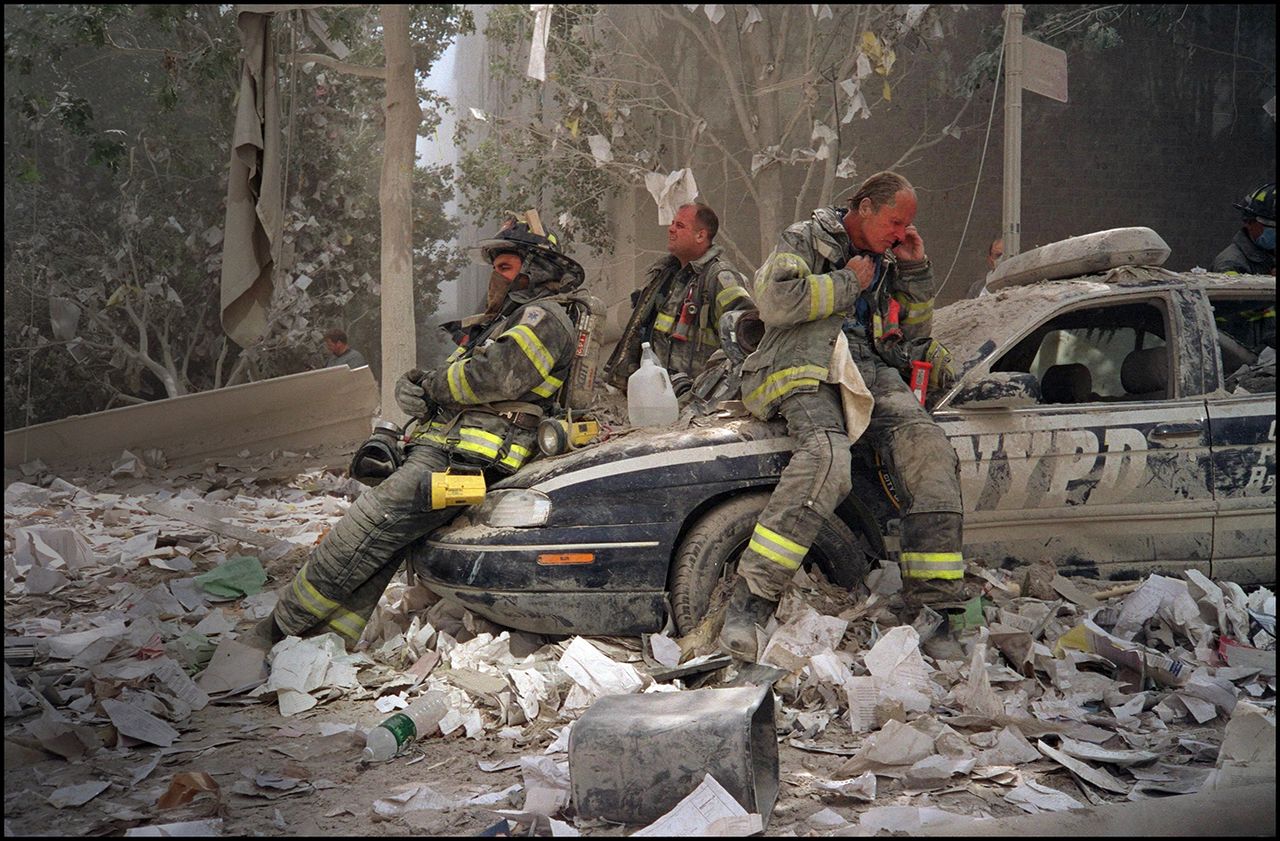New research is shedding light on how dust and debris from the fallen World Trade Center might impact the brain health of first responders.
Published on Wednesday in JAMA Network Open, the study from Stony Brook University in New York found a significant association between severe exposure to building debris and an increased risk of developing dementia before age 65.
This risk was notably higher compared to those who had either no exposure or who used protective equipment such as masks or hazmat suits.
The study, which analyzed data from 5,010 responders participating in the Stony Brook WTC Health and Wellness Program, maintained these findings even after accounting for demographic, medical, and social factors.
Sean Clouston, one of the study’s authors, told CBS News that the most surprising aspect of the findings was “how common the outcome seems to be already,” considering the relatively young ages of the responders. The median age of participants at the study’s start was 53.
“Dementia is a concern mostly for people in their 70s or 80s. Here, we found that rates were very high,” Clouston noted.
This research builds upon earlier work from the Stony Brook team. A 2022 study by the same researchers revealed that 9/11 first responders exhibited signs of cognitive impairment at approximately three times the rate of the general population.
The current study, however, is the first to “show an association between exposure and dementia, and to show that PPE might have helped mitigate the exposures,” Clouston explained.
While the exact mechanism remains unclear, he mentioned that existing literature indicates that “very fine particles and chemicals” present in the air at the World Trade Center were “neurotoxic and can pass through the blood-brain barrier to affect the brain.”

According to the Centers for Disease Control and Prevention, an estimated 400,000 individuals were exposed to toxic contaminants, physical injury risks, and physical and emotional stress in the aftermath of the attacks.
Dr. Benjamin Luft, co-author and director of the Stony Brook WTC Health and Wellness Program, emphasized the need for continued research on responders’ cognitive health.
“These findings are a major step forward in establishing that the dust and toxins released as a result of the calamitous terrorist attacks on 9/11 continue to have devastating consequences on the responders,” Luft, who has been evaluating these responders for 20 years, said in a news release. “The full extent of neurodegenerative disease still needs to be determined.”
In addition to cognitive issues, many responders now suffer from mental illnesses, including PTSD, and others have died from various cancers, chronic inflammatory lung disease, and other conditions.
Stefania Forner, a director of medical and scientific relations at the Alzheimer’s Association, told CBS News that the air quality responders faced at the World Trade Center was more severe than typical bad air quality.
“It included a wide range of hazardous materials,” she said. Nonetheless, air pollution and dementia are both significant global public health concerns.
“It’s known that air pollution is detrimental to brain health and may be associated with amyloid buildup in the brain and an increased risk of cognitive decline,” Forner added.
Clouston hopes that the latest research will influence how to respond to similar scenarios in the future, including “uncontrolled disasters where consumer goods and buildings collapse or are burned.”
Such scenarios could involve terrorist attacks or natural disasters like wildfires, he said.
“We should assume that the air is unsafe to breathe and act accordingly,” Clouston advised.
He also noted some positive news: “Wearing PPE seemed to help.”
